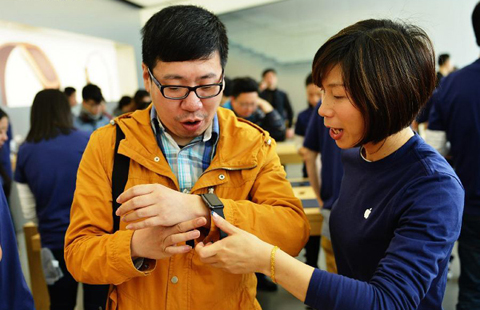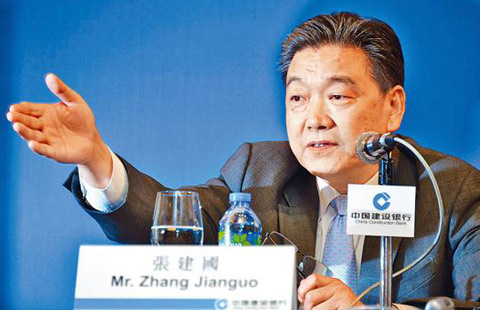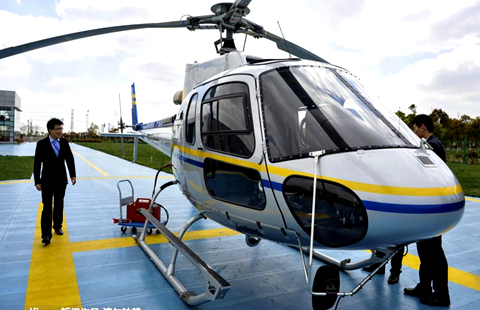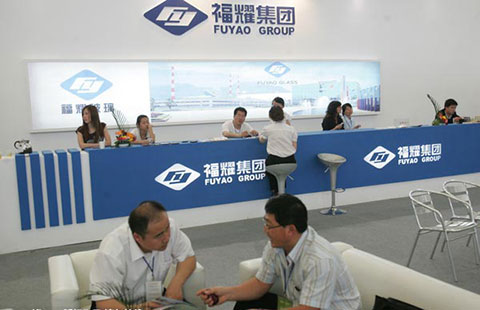Out with stir fry, in with real business nous
By Ed Zhang (China Daily) Updated: 2015-04-13 09:34The Greek philosopher Heraclitus said, "No man ever steps in the same river twice". Nor do investors find themselves in the same stock market rally twice. Markets in Shanghai and Shenzhen are rising to a level that investors have not seen for almost a decade. At least in the past week, indexes have changed quickly, reaching new highs daily.
And retail investors, led by rich and wayward middle-class housewives-called dama in Chinese-were still coming as if they were shopping on London's Bond Street, buying any share they can name.
Naturally bystanders ask if this is a bubble. No rally lasts forever. The current A-share rally-at a time when the real economy is not doing great and the nation's GDP growth is hovering around its lowest point in the last two decades-may simply look bizarre.
It is almost certain that the near-hysterical "stir-frying of shares", as the Chinese would say, is unsustainable. One can say with some certainty that, judging from the country's regulatory environment and generally ethical standards, that there must be some companies in the rally that are run by bad managers posting fake financial results.
Despite all this it is not the same rally. Investors are not excited about the same companies.
In the past, companies in China leading any stock market rise were State-owned steel mills, power plants, cement makers or coal mines, companies whose profit was ensured by the high GDP growth driven by property development in all cities.
Nowadays, it is increasingly hard for such old-economy companies to turn out impressive balance sheets. Also falling behind rapidly are the companies that once boasted of some trendy technologies but failed to extend their list of value-added services-like the few State-owned telecommunications service providers. They have become new utility companies.
Investors' money flows by and large in the direction that the central government and its economic advisers hope for. In the past couple of years, a generation of new companies has grown up, featuring more diverse business advantages. Many companies that have gained most in market value in the current rally are smaller and more specialized technology developers. And many are listed in the ChinNext market, the mainland equivalent of Hong Kong's GEM.
Of course, it is hard to tell which new companies can really grow into large and powerful ones, generating continuous shareholder value. In none of them is profit as guaranteed as it was from the steel mills, power stations, cement makers and coal mines of the past. Investors will lose money in many of the choices they make, as some of them have already lost with the companies running the online money lending business-called P2P platforms in China.
But on a societal scale, uncertainties mean opportunities. Some would-be opportunities are already fairly clear:
They cannot come from the old economy companies, least of all the polluting ones.
They cannot come from companies whose technologies have been widely available but have not created more value-added services on them.
They cannot come from companies that only depend on protective measures from government bureaucracies for their profit.
They cannot come from companies in which the business still does not have anything to do with the Internet.
Workers can continue to earn their wages while remaining digitally illiterate and directors continue to work on paper and do not use the Internet, especially the mobile net, as their key resources.
But for the next few years, serious investors will have to follow the money and the flow of the nation's human resources, especially the most active and creative types.
New opportunities will come from: Companies that can make changes in all the areas of a scarce supply of quality products or services;
Companies that can attract the best-educated young professionals;
Industries that continue exporting to the global market, especially in neck-and-neck competition, and those in close collaboration with industries in developed countries;
Industries and cities that have a growing migrant population.
It will not take too long to find all of them out.
The author is editor-at-large of China Daily.
- Out with stir fry, in with real business nous
- Learning to change, adapt and engage
- Self-driving vehicles expected on roads in next few years
- Cruise industry sailing eastward
- A class act: UK universities to attract more Chinese student
- Stock reform allows investors up to 20 accounts
- KFC rivals Starbucks in China
- Stronger yuan boosts tourism

















